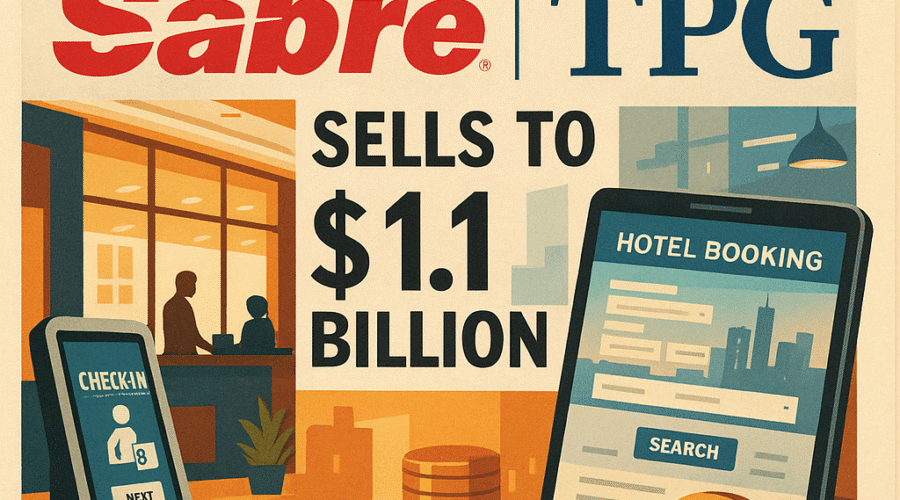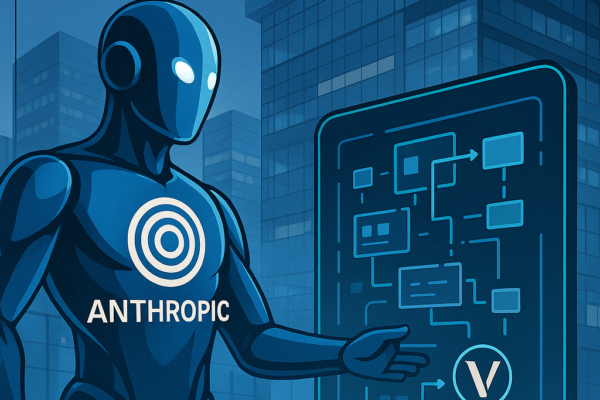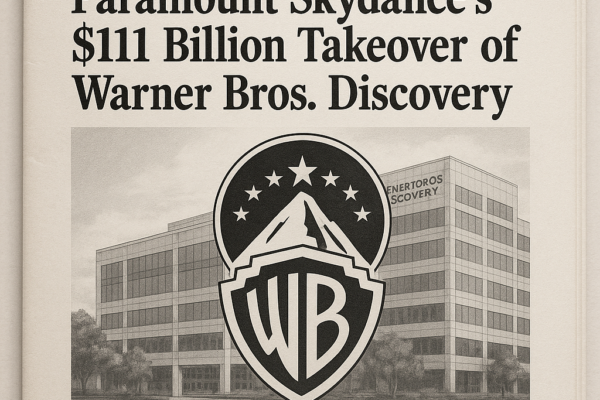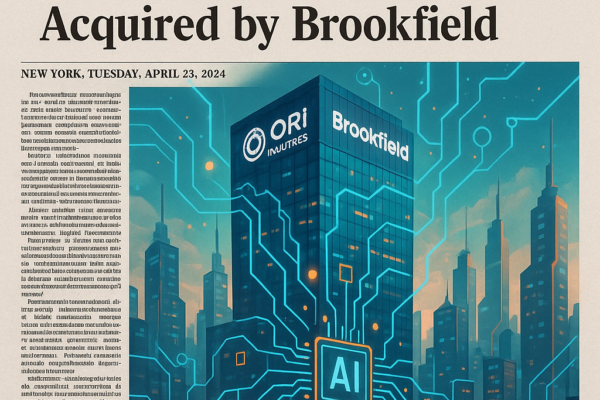Sabre Corporation’s divestiture of its Hospitality Solutions division to TPG for $1.1 billion represents a pivotal strategic shift in the travel technology landscape. Completed on July 7, 2025, the transaction yields $960 million in net proceeds after taxes and fees, which Sabre will primarily deploy toward debt reduction and balance sheet optimization. This carve-out enables Sabre to intensify focus on its core airline IT and travel distribution platforms while establishing Hospitality Solutions as an independent entity under TPG Capital’s stewardship. The deal underscores private equity’s growing appetite for mission-critical hospitality software assets and signals broader industry realignment toward specialized operational models[1][3][4][7].
💼 M&A / PE diligence in 24 hours? Yes, thanks to AI!
Transaction Architecture and Strategic Rationale
Deal Structure and Closing Mechanics
The definitive agreement, announced April 28, 2025, culminated in a clean asset transfer with no financing contingencies. TPG utilized its U.S. and European private equity platform (TPG Capital) for the acquisition, while Sabre secured board approval and regulatory clearances ahead of the July closing. A transition services agreement ensures operational continuity, with Sabre providing interim support during the business separation[2][9]. The $1.1 billion valuation reflects approximately 2.2x Hospitality Solutions’ 2024 revenue, aligning with premium SaaS platform multiples despite Sabre’s broader financial pressures[7][13].
Sabre’s Portfolio Optimization Imperative
CEO Kurt Ekert characterized the divestiture as “an important step in Sabre’s ongoing transformation,” emphasizing three strategic pillars: debt reduction, portfolio optimization, and sustainable growth acceleration. Hospitality Solutions—though serving 40% of global hotel brands—diverged from Sabre’s core airline distribution focus. The unit’s origins trace to Sabre’s 2005 SynXis acquisition, with subsequent expansions including Nuvola (2022) and Techsembly (2023) enhancing its cloud-based reservation capabilities[1][8][10]. Post-sale, Sabre retains its hotel B2B distribution operations while shedding lower-margin SaaS development overhead[2][13].
TPG’s Investment Thesis
TPG partners Tim Millikin and Paul Hackwell highlighted Hospitality Solutions’ “mission-critical” position in hotel operations, emphasizing the platform’s integrated reservation and guest data architecture. The carve-out leverages TPG’s software sector expertise, mirroring previous investments in Boomi, McAfee, and Wind River. Hackwell noted the hospitality industry’s “rapid evolution” demands specialized technology partners, positioning the standalone entity to capture enterprise digital transformation budgets[9][10][11]. Concurrently, MCR’s strategic minority investment brings hotelier perspective through Tyler Morse’s board vice-chairmanship[11].
Financial Engineering and Balance Sheet Implications
Sabre’s Debt Restructuring Pathway
The $960 million net proceeds directly address Sabre’s $4.5 billion debt burden, accelerating the company’s target to reduce net leverage from 5.3x to 2.5x-3.5x. This transaction follows Sabre’s December 2024 debt refinancing and April 2025 maturity repayments, collectively enhancing capital structure flexibility. Debt reduction remains paramount: Sabre’s Q1 2025 interest expenses consumed 47% of gross profit, constraining R&D investment in core travel marketplace platforms[4][7][8][13].
| Financial Metric | Pre-Transaction | Post-Transaction |
|---|---|---|
| Total Debt | $4.5B | $3.54B |
| Net Leverage Ratio | 5.3x | 4.1x (proj.) |
| Annual Interest Expense | $287M | $221M (est.) |
Valuation Considerations
At 2.2x revenue, the $1.1 billion price tag acknowledges Hospitality Solutions’ growth trajectory but discounts Sabre’s urgent deleveraging needs. The unit’s 2024 revenue approximated $500 million, with mid-single-digit annual growth. Comparable transactions include Thoma Bravo’s acquisition of Cendyn (2023, 3.1x revenue) and Oracle’s purchase of Opera PMS (2018, 2.8x), suggesting TPG secured favorable terms amid Sabre’s balance sheet pressures[7][13].
Hospitality Technology Sector Reconfiguration
Competitive Landscape Shifts
Hospitality Solutions’ independence creates a pure-play competitor to Oracle Hospitality, Infor, and Amadeus’ hotel IT suite. The carve-out removes channel conflict concerns for hoteliers previously wary of Sabre’s airline-centric priorities. TPG’s investment thesis anticipates share gains through accelerated product development, particularly in cloud-based property management and integrated guest experience tools[2][10][11].
Digital Transformation Acceleration
New CEO Teresa Mackintosh emphasized the industry’s “long-overdue digital transformation,” positioning the platform to capitalize on hoteliers’ $11 billion annual technology spend. Her background leading Trintech and Wolters Kluwer’s tax software divisions signals a focus on scalability and enterprise feature development. Immediate priorities include integrating Nuvola’s guest engagement tools and Techsembly’s e-commerce capabilities into a unified ecosystem[1][11].
Leadership and Operational Transition
Governance and Strategic Direction
Teresa Mackintosh’s appointment as CEO introduces proven SaaS operational expertise to Hospitality Solutions. Her mandate includes organizational realignment from Sabre’s corporate structure to independent R&D prioritization. Tyler Morse’s board role bridges owner-operator perspectives, crucial for product roadmap validation. Early signals suggest aggressive hiring in AI/ML engineering to enhance the platform’s predictive analytics capabilities[11].
Customer Transition Protocols
The transition services agreement minimizes disruption for 42,000 hotel properties using SynXis. Key accounts like Hyatt—which selected Sabre for its central reservation system in 2023—receive dedicated migration teams. TPG’s carve-out experience (McAfee, Wind River) informs phased operational independence by Q1 2026, with critical systems migration preceding sales/marketing separation[1][9][10].
Private Equity’s Hospitality Technology Thesis
Sector Investment Trends
TPG’s acquisition extends private equity’s $18 billion hospitality tech investment spree since 2022, targeting fragmented software verticals with consolidation potential. The asset class prioritizes: 1) Recurring revenue models (Hospitality Solutions: 92% SaaS), 2) Cross-sell opportunities across hotel tiers, and 3) Operational efficiency tools replacing legacy on-premise systems[9][10][13].
Comparative Deal Structures
The transaction exemplifies sophisticated carve-out execution: TPG avoided financing contingencies while securing MCR’s strategic co-investment. This contrasts with Thoma Bravo’s leveraged buyout of Cendyn and Blackstone’s minority stake in Cloudbeds, reflecting TPG’s operational value-creation focus over financial engineering. Deal terms include performance-based earnouts for key Hospitality Solutions executives[9][11].
Broader Market Implications
Sabre’s Competitive Repositioning
Divesting Hospitality Solutions allows Sabre to redirect $85 million in annual R&D toward its Travel Marketplace and Airline IT segments. The company faces intensifying competition from Navan in corporate travel and Amadeus in airline distribution. Debt reduction provides runway to address these threats, though persistent leverage concerns may necessitate further portfolio pruning[1][4][8].
M&A Market Precendents
This transaction establishes a valuation benchmark for hotel technology assets, potentially catalyzing further sector consolidation. Comparable targets include IDeaS (revenue management) and Duetto (commercial strategy), both operating at similar scale. Private equity firms now hold 6 of the top 10 hospitality software providers, suggesting continued roll-up opportunities[10][13].
Conclusion: Strategic Recalibration Across Ecosystems
Sabre’s Hospitality Solutions divestiture represents a mutually strategic realignment: TPG acquires a scalable platform in a high-growth vertical, while Sabre gains balance sheet flexibility to fortify core businesses. The transaction exemplifies private equity’s expanding role in corporate carve-outs, particularly for non-core technology divisions of publicly traded companies. For hoteliers, the independence of Hospitality Solutions promises accelerated innovation in guest experience tools, though integration risks persist during the transition. As Teresa Mackintosh leads the newly autonomous entity, her success will hinge on balancing TPG’s return expectations with hotel operators’ evolving technological requirements in an increasingly digital hospitality landscape[1][9][11].
Sources
https://www.phocuswire.com/sabre-closes-hospitality-business-sale, https://www.hotelmanagement.net/tech/sabre-sell-its-hospitality-business-tpg-11b, https://www.prnewswire.com/news-releases/sabre-announces-closing-of-sale-of-hospitality-solutions-business-to-tpg-302498040.html, https://www.streetinsider.com/Corporate+News/Sabre+completes+$1.1+billion+sale+of+hospitality+unit+to+TPG/25020953.html, https://www.travelweekly.com/Travel-News/Travel-Technology/Sabre-completes-Hospitality-Solutions-sale, https://www.businesstravelnewseurope.com/Technology/Sabre-completes-1-1-billion-sale-of-Hospitality-Solutions-to-TPG, https://www.stocktitan.net/news/SABR/sabre-announces-closing-of-sale-of-hospitality-solutions-business-to-ft7pivx1hx38.html, https://www.travelpulse.com/news/technology/sabre-closes-1-1-billion-hospitality-software-sale-to-tpg, https://www.tpg.com/news-and-insights/sabre-enters-into-definitive-agreement-to-sell-its-hospitality-solutions-business-unit-to-tpg-for-1-1-billion, https://dallasinnovates.com/sabre-to-sell-its-hospitality-tech-business-to-tpg-for-1-1-billion/, https://hotelbusiness.com/tpg-completes-acquisition-of-hospitality-solutions-from-sabre/, https://investors.sabre.com/news-releases/news-release-details/sabre-announces-closing-sale-hospitality-solutions-business-tpg, https://www.hoteldive.com/news/sabre-sells-hospitality-solutions-tpg/746619/





